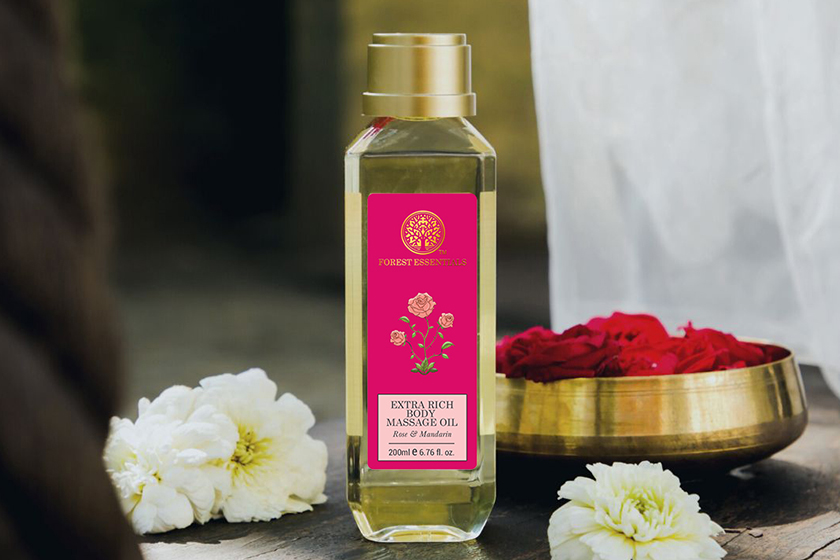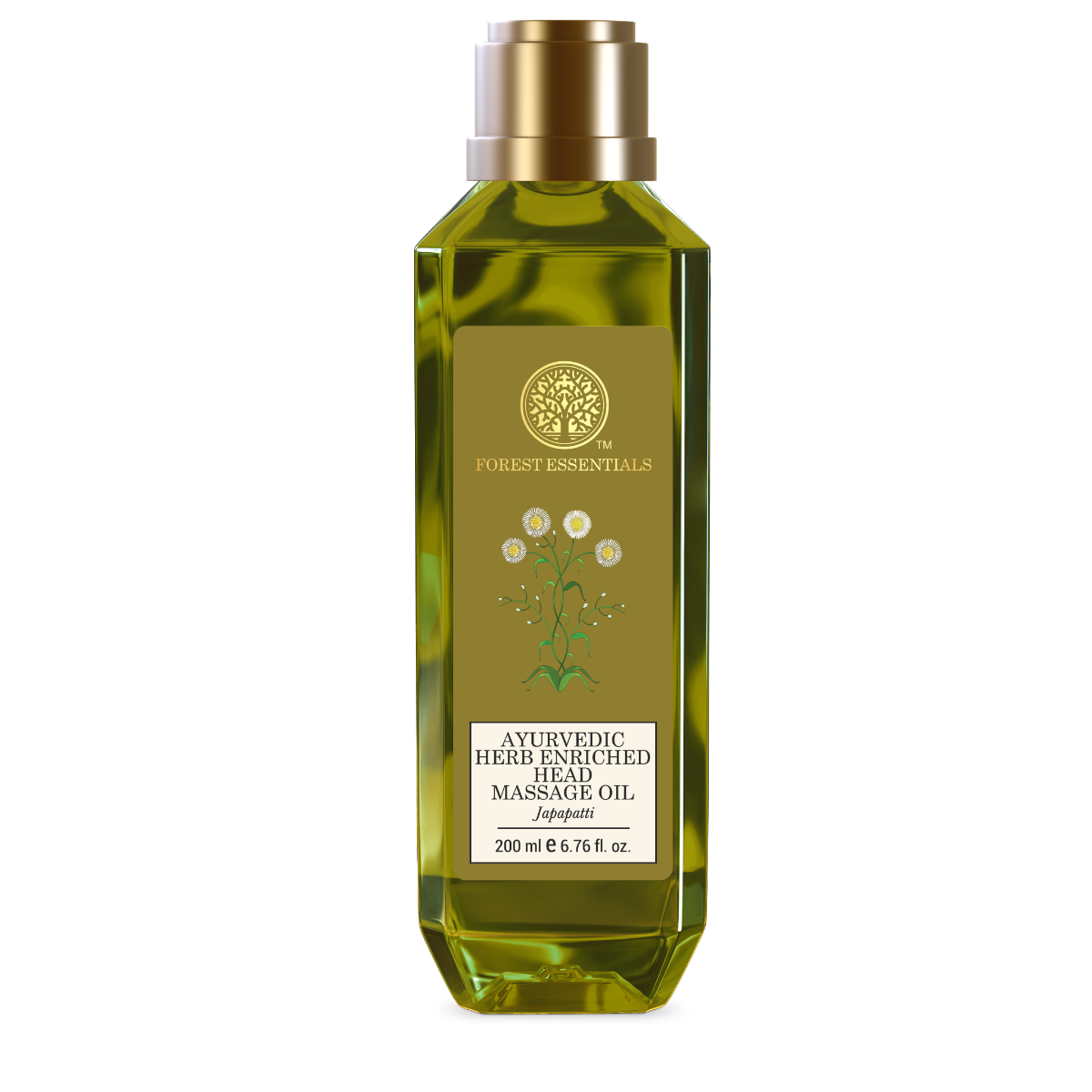Abhyanga – this Ayurvedic oil massage is an integral part of the daily routine or Dinacharya, recommended by the ancient healing system for overall health and wellbeing, known as Ayurveda. It is a type of bahiya snehan or external oleation. The Sanskrit word Sneha means both “oil” and “love,” and the effects of Abhyanga are similar to the effect of saturation with love. Both experiences can give a deep feeling of stability, warmth, and comfort.
Abhyanga or massage therapy is not just good for our muscles but also for our entire physical and mental wellbeing. Research shows that a single touch can help reduce anxiety and stress, and help us feel more secure, safe, and less lonely.
Abhyanga is a powerful balancing treatment that stimulates the body’s energy channels and opens kundalini, a subtle force that opens the mind to the experience of inner wakefulness. This Ayurvedic massage is a therapy for cultivating blissful awareness, which is the ultimate basis of radiant and everlasting beauty.
In Ayurveda, the body is compared to the tree, and when the root of the tree is given water regularly, it survives for an extensive duration. Similarly, the daily practice of Abhyanga imparts long-term health benefits to our body and mind.

Charak Samhita, the most ancient ayurvedic text says- “By performing an oil massage daily, a person is endowed with a pleasant touch, a trim body structure and becomes strong, charming and least affected by old age.”
As per this ancient science, a person should make use of either herb-infused oils as per their dosha, or pure cow’s ghee or sesame oil for an oil bath and anointing; considering the nature of the body, constitution, strength, habituation, season, habitat and aggravated dosha.
Various Purposes of Abhyanga in Ayurveda:
Abhyanga can be incorporated for the four below purposes:
- As a part of Dinacharya or ayurvedic daily routine – For the prevention of various ailments and for maintaining and promoting positive health.
- As Purva Karma or Pre-treatment therapy – Abhyanga in conjunction with fomentation is given before administering several categories of elimination therapies or Panchkarma in Ayurvedic treatments.
- As Pradhana Karma or Primary Treatment – It can also be done as a distinctive therapy for a suggested period in many indicated diseases.
- As Paschat Karma or Post-Treatment Therapy – In Mukhalepa, after the application of the lepa, a gentle oil massage is recommended.

How to choose the right body oil for your skin and dosha?
As per Ayurveda, Body massage oils or “Tailums” offer a natural response to an unbalanced state of skin and help to combat all types of skin concerns including dehydration, inflammation and dull skin. This ancient science also recommends Dosha specific oils for different skin types.
Vata skin type is characterised as being “Normal to Dry”.
Nourishing and warming oils like black sesame and sweet almond oil are the preferred options. One should look out for Jasmine, Red Sandalwood and Camphor essential oils.
Practicing abhyanga daily can be highly beneficial, even life-changing, for balancing Vata. This dosha benefits from a gentle warm oil massage in a warm environment.
Pitta skin type is characterised as being “Normal to Combination and sensitive skin”
Cooling and calming oils like Virgin Coconut Oil, Sunflower Oil, and Apricot Kernel Oil are ideal. One should opt for Indian Rose Absolute, Mysore Sandalwood, Vetiver and Cardamom essential oils
For Pitta dosha, the key is to keep it cool. It is important to only gently warm the oil or use it at room temperature for your abhyanga. Oil applied to the head should be cool in the summer and slightly warm in the winter.
Kapha skin type is characterised as being “Normal to Oily Skin”

Light and stimulating oils such as Safflower oil and Mustard oil are most suitable. Eucalyptus, Black Pepper, Ginger, Oudh and Cinnamon essential oils should be favoured.
It is usually best to use less oil for Kapha Abhyanga as compared to Vata or Pitta balancing self-massage practices.
What are the benefits of Abhyanga?
Once absorbed into the body, the massage oils have numerous effects besides just softening and soothing the skin. When we massage the oil, it lubricates the internal environment; releases stored up toxins and carries them back to the digestive tract for elimination. It also stimulates dhatu agni, the metabolic fire of tissue, and thus enhances ojas.
Ayurvedic texts suggest that the oil massage or Abhyanga should be done daily because it bestows the body with the following properties-
- Varna Prada – improves the body complexion
- Twakdardyakara – helps to maintain skin elasticity
- Vyadhikshamatwa – restores natural immunity
- Jarahara – rejuvenates body tissues, promotes health and prevents ageing process
- Vatahara – alleviates Vata dosha, Kaphahara – alleviates Kapha dosha, and Abhighata sahyatva – reduces the effects of any trauma
- Kleshasaha – helps to overcome anxiety and stress
- Shramahara – relaxes the muscles and relieves fatigue
- Balavan – improves physical strength
- Dhatu pushti janana – promotes the excellence of body tissues
FAQ’s
When should abhyanga be done?
As a ritual in dinacharya, abhyanga is positioned as a part of the morning rituals. However, as per the dosha, and to correct the dosha imbalance, an Ayurvedic practitioner can also recommend different timelines for abhyanga as per the Ayurvedic body clock.
Ayurveda also recommends practicing abhyanga for a minimum of fifteen minutes in order for the effects of the oil to reach the seven dhatus, or tissue layers in the body.
Should abhyanga be done daily?
Ayurvedic texts recommend Abhyanga to be performed daily or if not daily, at least applying the oil onto the head, ears and foot frequently to lead a healthy life.
Can abhyanga be done at night?
Preferably, Abhyanga is a morning ritual in Ayurveda; however, you can do a short gentle foot or head massage at night to get the benefits of this massage.
Do I have to shower after abhyanga?
Abhyanga is preferably a morning practice, which ideally should be performed before exercising and bathing. A warm shower can be taken after 20-30 minutes of the Abhyanga.
Do you use soap after abhyanga?
After 20 minutes, wipe yourself gently with a towel. Do not scrub the oil off; if using a body scrub, cleanser or a soap, allow the soap to rinse off the excess oil gently. Then, gently tap dry with a towel to allow the oil to continue to moisturize the skin.
When should you not perform abhyanga?
Ayurveda suggests abhyanga should be avoided immediately after taking your meals, during times of great physical discomfort, in conditions such as indigestion, aggravation of Kapha, state of Ama in the body, nascent fever, pregnancy, menstrual cycles, and for those who have an acute illness or medical condition.
How should one perform Abhyanga?
Abhyanga can be done either in a standing or sitting or lying position. Abhyanga should be done in Anuloma (in the direction of hair growth) with the palms to prevent any damage to the hair roots.
Early morning massages with slightly warm oil should be incorporated by applying a small amount of the oil onto the scalp and massaging the head gently. The open palms of the hands and the flat surfaces of the fingers should be used rather than the fingertips for the whole massage.

















